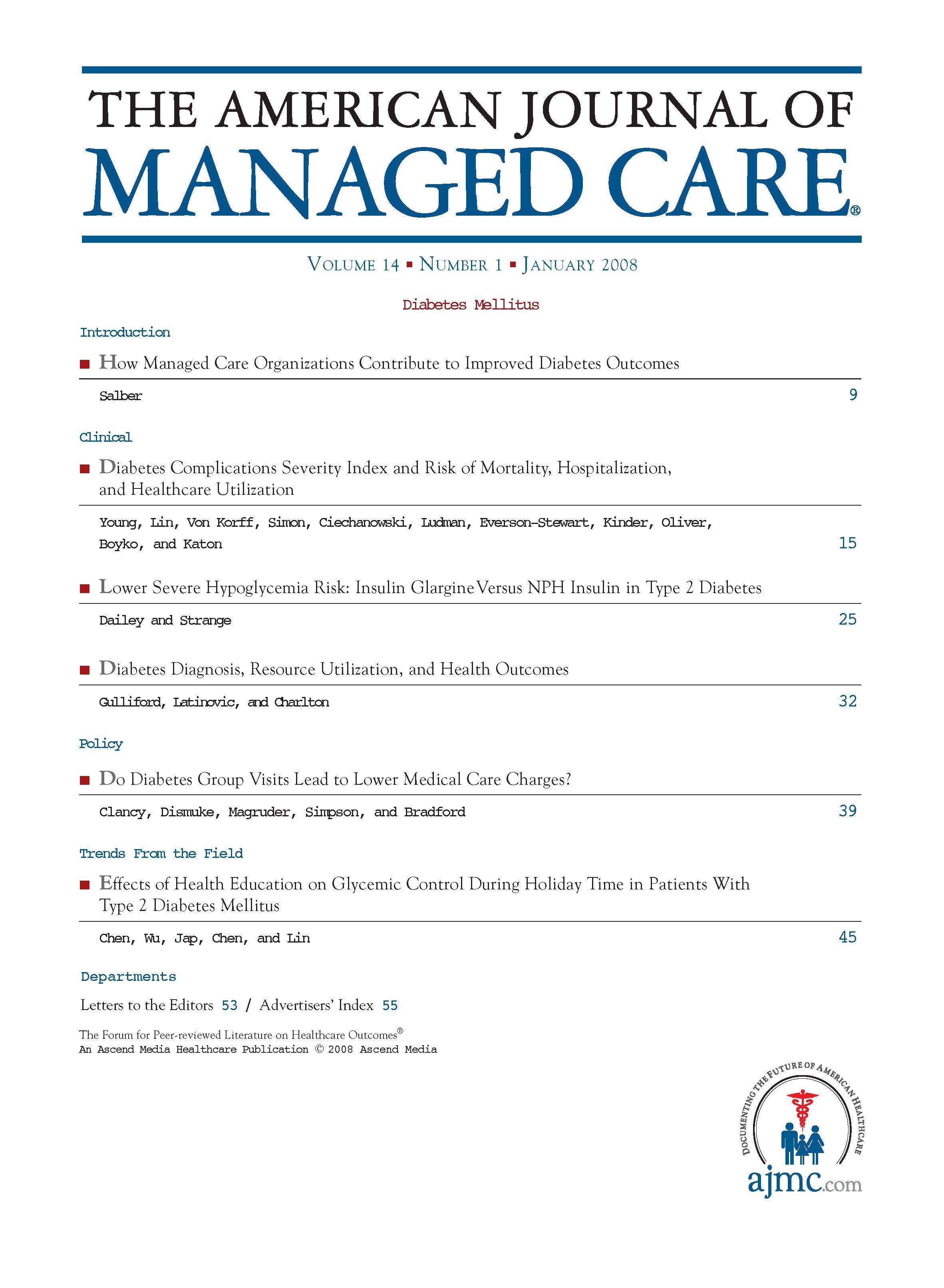- Center on Health Equity & Access
- Clinical
- Health Care Cost
- Health Care Delivery
- Insurance
- Policy
- Technology
- Value-Based Care
Lowering LDL-C for Optimal Protection in High-risk Patients
A potentially confusing clinical message was sent in the article by Goldberg et al.1 The study, which emphasized the need for reduction of LDL-C below 100 mg/dL, did not address the newer concept of lowering LDL-C below 70 mg/dL for optimal protection in high-risk patients. Accordingly, patients with coronary artery disease and diabetes mellitus should be treated for an LDL-C goal of 70 mg/dL or less. The concern, of course, is that clinicians will adhere to the less than 100-mg/dL LDL-C guideline instead of less than 70 mg/dL in the treatment of high-risk patients.
Regarding cholesterol treatment, the Pravastatin or Atorvastatin Evaluation and Infection Therapy [PROVE-IT] trial revealed that vascular events were reduced with aggressive lipid-lowering tactics (eg, atorvastatin at 80 mg/day vs pravastatin at 40 mg/day). The message conveyed was that lower is better in waging the war against LDL-C and coronary artery disease.
Additionally, the high-sensitivity C-reactive protein (hs-CRP) test has utility in the management of risk assessment as well as dosage adjustment of the statin. Attention should be directed to LDL-C and hs-CRP levels in the management of high-risk patients.
Frank M. Shanley, DO
Address correspondence to: Diane Binetti, 124 E Main St, Ste 106, Denville, NJ 07834. E-mail: dibinetti@optonline.net.
We appreciate the thoughtful responses to our article by Drs Federman and Shanley.
Duke University and Durham VA Medical Center
Author Disclosure: The author has no conflict of interest with any product discussed in this article.
Address correspondence to: Kenneth C. Goldberg, MD, Division of Ambulatory Care, Box 11C, Durham VA Medical Center, 508 Fulton St, Durham, NC 27705. E-mail: kenneth.goldberg@duke.edu.

Building Trust: Public Priorities for Health Care AI Labeling
January 27th 2026A Michigan-based deliberative study found strong public support for patient-informed artificial intelligence (AI) labeling in health care, emphasizing transparency, privacy, equity, and safety to build trust.
Read More
Ambient AI Tool Adoption in US Hospitals and Associated Factors
January 27th 2026Nearly two-thirds of hospitals using Epic have adopted ambient artificial intelligence (AI), with higher uptake among larger, not-for-profit hospitals and those with higher workload and stronger financial performance.
Read More
Motivating and Enabling Factors Supporting Targeted Improvements to Hospital-SNF Transitions
January 26th 2026Skilled nursing facilities (SNFs) with a high volume of referred patients with Alzheimer disease and related dementias may work harder to manage care transitions with less availability of resources that enable high-quality handoffs.
Read More
Specialty and Operator Status Influence Electronic Health Record Use Variation
January 22nd 2026Operators demonstrated specialty-specific differences in electronic health record efficiency, timeliness, and after-hours use, highlighting how workflow and training shape documentation behaviors across medical disciplines.
Read More

